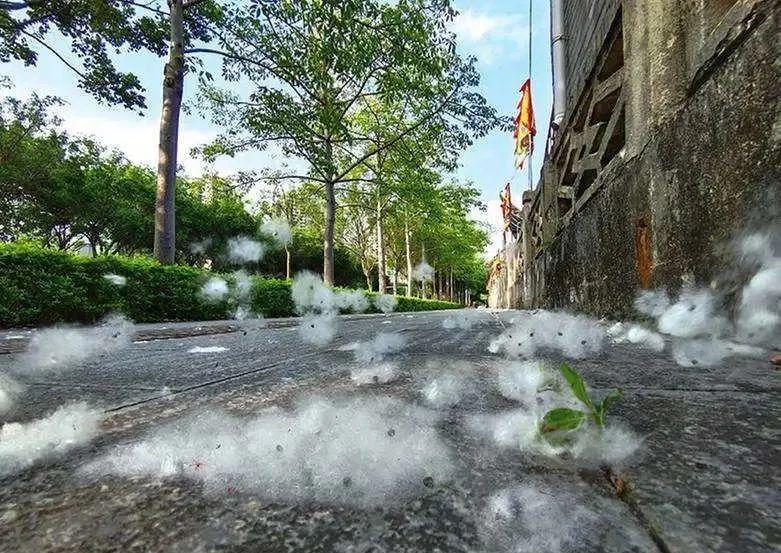The most beautiful April day, when the spring is warm and blossoming, but the troubles of "April flying snow" also come. What are the dangers of flying feathers? What do I need to pay attention to in daily protection?

It is easy to cause allergies
Flying feathers fly around the sky, it looks beautiful, but it is a big allergen.
Although the flying feather itself is not toxic, but because of the light texture, often with the wind or rise or fall or drift, when the willow fluttering, it will bring up dirt and dust on the ground, thus affecting the air quality.
At the same time, it is easy for flying feathers to become carriers and spreaders of germs, resulting in inflammation of human eyes, nose and throat. If it causes skin allergies, small rashes, peeling, redness and itching, chronic bronchitis and other respiratory diseases. In particular, children, the elderly and patients with respiratory diseases often react particularly strongly to Yang Shu and need to be particularly strictly guarded against.
Flying Season Protection Raiders
1. Hide
Generally, 10:00 a.m. to 4:00 p.m. is a high incidence of flying feathers, and the public with allergies try to avoid going out during this time period. If you must go out, try to choose willow silk less in the morning, evening, or after the rain.
2. Cover
When going out, try to do a good job of protection, masks, glasses and coats can not be less, fully "armed" and then go out. Because the flying floc particles are relatively large, ordinary masks can be resisted, and we can choose pure cotton or light and thin material masks, so that it is more comfortable to wear.
3. Wash
For the public with allergic rhinitis or sensitive to pollen or willow wool, it is best to wash the nasal cavity 2-3 times a day.
After the skin is stained with willow flocculent, it should also be removed in time, and it is best to wash it with warm water to help prevent allergies or alleviate allergy symptoms. If the skin itching, erythema, papules and other symptoms are serious, seek medical attention in time.
4. Eat
In the fly season, children, the elderly and other sensitive people should be properly supplemented with vitamin C and vitamin E, you can eat some cabbage, tomatoes, carrots, citrus and so on.
5. Tune
Being "harassed" by the flying willows can easily lead to a worse mood, so don't forget to adjust your emotions appropriately.
Pay special attention
1. Caution fire disease
In the past, one of the main reasons for fires caused by willow fluff was caused by children playing with fire. Children are curious and curious about the willows that are flying down, and often ignite the piles of willows that have accumulated, resulting in fires.
Here's a reminder: Don't be greedy for fun to ignite the wool! In order to prevent unnecessary personal injury and property damage caused by fire caused by willow silk.
2. Do not rub your eyes with your hands
If you accidentally get into your eyes, don't rub it with your hands, otherwise it will be easy to scratch the cornea.
Correct method: If the foreign body is small and not much irritation, reflex tears will discharge it, or rinse with water.
If the flying feathers enter the deep layer of the eye, it is recommended to go to the hospital in time to ask a doctor for treatment.
3. Do not scratch the skin hard
When the skin is allergic, the itching is intolerable, but do not scratch repeatedly, in addition to applying antipruritic drugs under the guidance of a doctor, you can also:
Tap: The vertical force does not damage the skin.
Cold compresses: can reduce the skin's "memory" of irritation.
Source: China Meteorological Data
Editor-in-Charge: Hao Duo
Editor: Chen Weiping Chen Jingchao